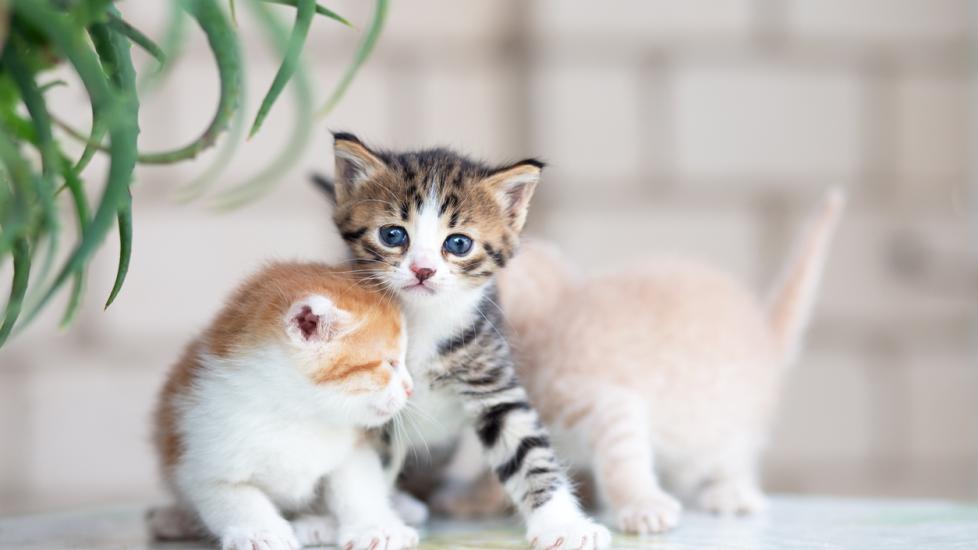 Introduction:
Introduction:
As a pet owner, ensuring the health and well-being of your beloved feline friend is paramount. One crucial aspect of maintaining your kitten’s good health is keeping up with their vaccination schedule. Not only does it protect them from serious diseases, but it also contributes to the overall safety of other pets in your household and community. In this article, we will delve into the importance of vaccinations for kittens, outline a typical vaccination schedule, discuss associated costs, and provide tips on how to make these essential medical visits as smooth as possible.
Why Are Kitten Vaccinations Necessary?
Just like human babies, young cats are vulnerable to various infectious diseases that can be potentially life-threatening or lead to long-term health issues. By following an appropriate vaccination protocol, you help safeguard your kitten against illnesses such as:
- Feline Panleukopenia (FPV): A highly contagious viral infection characterized by fever, vomiting, diarrhea, and lethargy. It can be fatal without treatment.
- Rabies: A deadly zoonotic disease that affects both animals and humans. It is legally required to vaccinate all pets against rabies in most areas.
- Feline Herpesvirus (FHV) and Calicivirus (FCV): These viruses cause upper respiratory infections, which can lead to severe symptoms including eye damage and pneumonia.
- Feline Leukemia Virus (FeLV): Although not all infected cats develop clinical signs, FeLV can suppress the immune system, leading to cancer, anemia, and secondary infections.
The Typical Vaccination Schedule:
Most veterinarians recommend starting your kitten’s immunization series at around six to eight weeks old. The initial round of shots often includes FVRCP (feline viral rhinotracheitis, calicivirus, panleukopenia) and sometimes rabies if local laws require it. Boosters may be given every three to four weeks until your kitten reaches about sixteen weeks old. After this period, annual boosters will likely be needed to maintain immunity. Your vet might adjust the timing based on factors such as your cat’s lifestyle (indoor vs outdoor) and potential exposure risks.
Here’s a general timeline for a kitten’s primary vaccine course:
- First set of vaccines: Around 6 – 8 weeks old
- Second set of vaccines: 9 – 11 weeks old
- Third set of vaccines: 12 – 15 weeks old
- Rabies vaccine (if applicable): Depending on state regulations, typically after 16 weeks old
Cost Considerations:
The cost of kitten vaccinations can vary widely depending on where you live, the type of veterinary clinic you visit, and whether your kitten needs additional tests or treatments during each appointment. On average, expect to pay anywhere between $20 and $50 per shot, with some clinics offering package deals for the full series. You should also factor in the price of routine examinations, blood tests, and any special care instructions provided by your veterinarian. Overall, the total expenditure could range from approximately $150 to several hundred dollars throughout the first year.
Making Vaccination Visits Easier:
To ensure a positive experience for both you and your furry companion, keep these points in mind:
- Choose the Right Veterinary Clinic: Look for a practice experienced in handling cats and known for providing high-quality care.
- Create a Safe Environment: Use calming music, pheromone diffusers, or even familiar scents to reduce stress for your kitten while waiting for the appointment.
- Bring Essentials: Don’t forget to take along your kitten’s medical records, current medications, and any questions you have prepared ahead of time.
- Practice Makes Perfect: Desensitize your kitten to carrier use and trips to the vet before they need their first vaccination. This helps prevent anxiety during appointments.
- Follow Post-Vaccination Instructions: Be sure to follow through on any advice regarding monitoring your kitten for side effects and when to schedule future check-ups.
In conclusion, investing in your kitten’s vaccination program is one of the best ways to give them a healthy start in life. Regular booster shots are equally important for maintaining protection against common feline diseases. Remember to consult with your trusted veterinarian for personalized recommendations tailored to your kitten’s unique situation.
